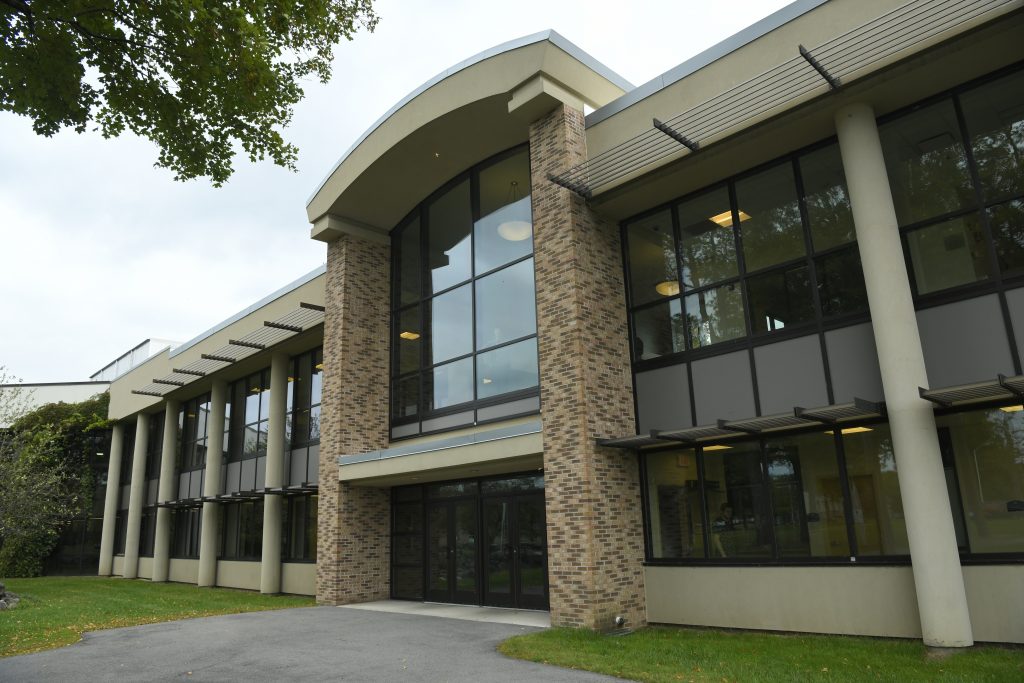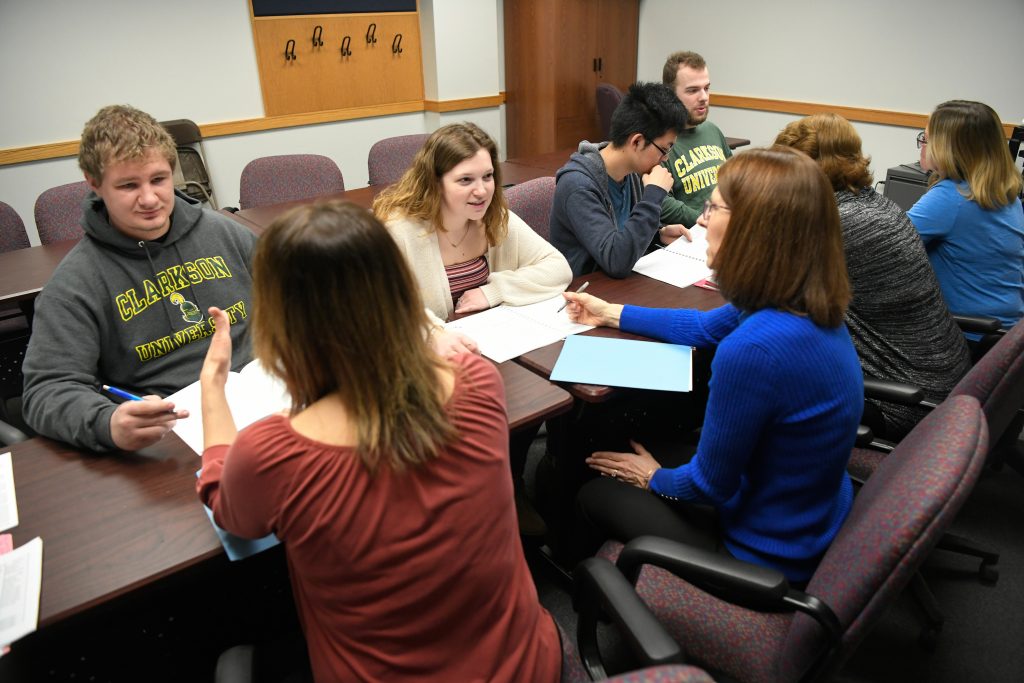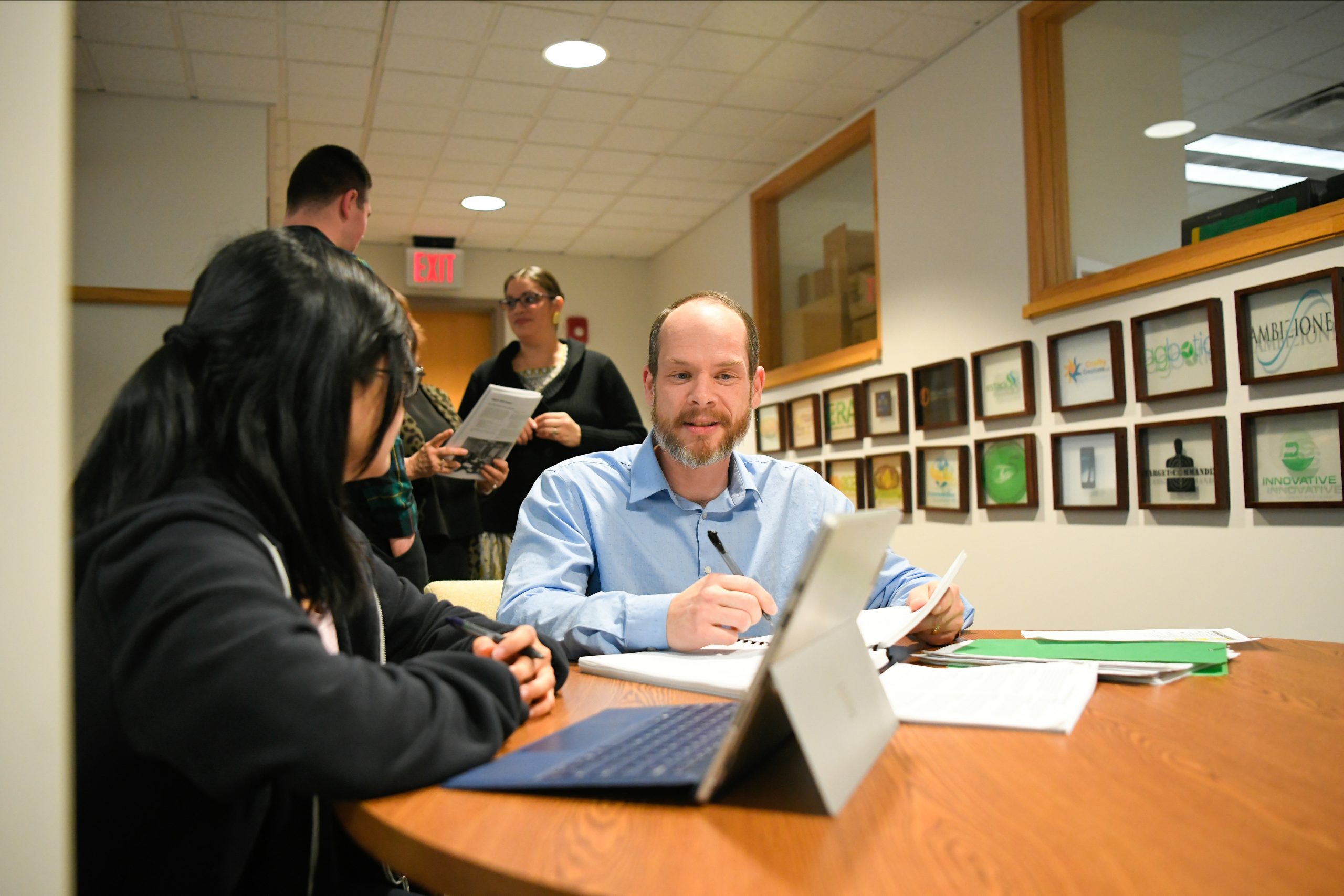In college, every student benefits from having a support team. Whether it’s a student feeling overwhelmed or confused about their college and career path, or a student simply looking for the encouragement to carry forward on the path they’re comfortable on, having supportive people around to give input, advice, and guidance is important. At Clarkson, we have a variety of offices and people whose roles are formally dedicated to helping students, and many more who informally guide students through their college experience and beyond, like coaches, faculty, and staff.
My name is Cathy Avadikian, and I have been at Clarkson for over 40 years. The majority of that time has been spent advising students. Currently, I am the Director of the Office of University Advising and University Studies, and Science Studies, which has five professional staff members (including myself), and all students who choose University Studies as their first major at Clarkson.
Our advising philosophy at Clarkson is to let professional staff members and/or faculty members advise our students. Most of our majors have faculty members advising our students from day one. They make students’ first-year schedules and guide our students along the way to help them become prepared for your unique career aspirations.
Our office, the Office of University Advising, is unique in the way that it functions. We work to provide supplemental advising support to all our students. We also work closely with the faculty advisors to support them! But what does supplemental advising look like and mean? Our goal is to help students make the right connections between other areas across the campus, such as the Career Center, Health and Counseling, Student Achievement Services, Student Success Center, and faculty.
You might be wondering things like “What does the Office of University Advising do?” “How does advising work?” and “When can I come see your staff?” I’ve put together a few quick answers to some common questions to help answer these questions and more.
Q: What is Academic Advising?
A: Academic advising plays an important role in supporting student achievements, particularly in helping them to reach their goals and potential. Think of it as a way to connect you further to the campus and to give you a sense that someone is always looking out for you. It is a process, very much like teaching, whereby advisors and advisees develop a working relationship that helps advisees develop self-awareness, goals, and plans for academic enrichment and achievement.
Q: What are some of the reasons to visit the Office of University Advising?
A: “Any reason” is the short answer – we are here to help you! We will guide you through the Clarkson process if you are in need of it. We will connect you with other departments, and people to help in any way we possibly can. Think of us as a supportive aunt!
We are here to help in any situation, but some of the things we commonly help with are:
- Questions about adding or dropping a course
- Adding minors, double majors, or second degrees
- Cross Registration or completing course work off-campus
- Pre-Health Science Advising
- Supplementary Advising
Q: What does the Office of University Advising look like and where can I find it?

A: Our office is located in TAC Room 209, we are set up to have meetings one-on-one with students, think of it more like a conversation when you come to us. We want to learn more about you and your goals, and needs. We chat and find the best plan and path for you.
Q: Where do I find out who my academic advisor is?
A: You are able to locate your major academic advisor’s name on the “Student Center” tab in myCU. Click on the “details” link to find out additional information about your advisors, such as their role and contact information.

Q: What is the role and what are the responsibilities of your academic advisor?
A: An academic advisor has many roles and can talk with you about a multitude of things. They are typically teachers, scholars, and/or administrators/professional advisors. You should make it a practice to use yours as an advisor as a mentor or coach assisting you in the growth and development of your educational career. Other ways they are helpful:
- Providing accurate information about your major and careers (or make referrals when appropriate and necessary)
- Being accessible in-person, by phone, or via email
- Establishing goals such as co-ops, minors, double majors, and experiential learning opportunities; including Pre-Health Sciences
- Having a positive impact or challenge you to improve performance when necessary
As I’ve already said many times, the best way that we can help you is if you reach out to us. Our professional staff members are here to assist you throughout your time at Clarkson. Don’t be a stranger! We look forward to seeing you soon!

